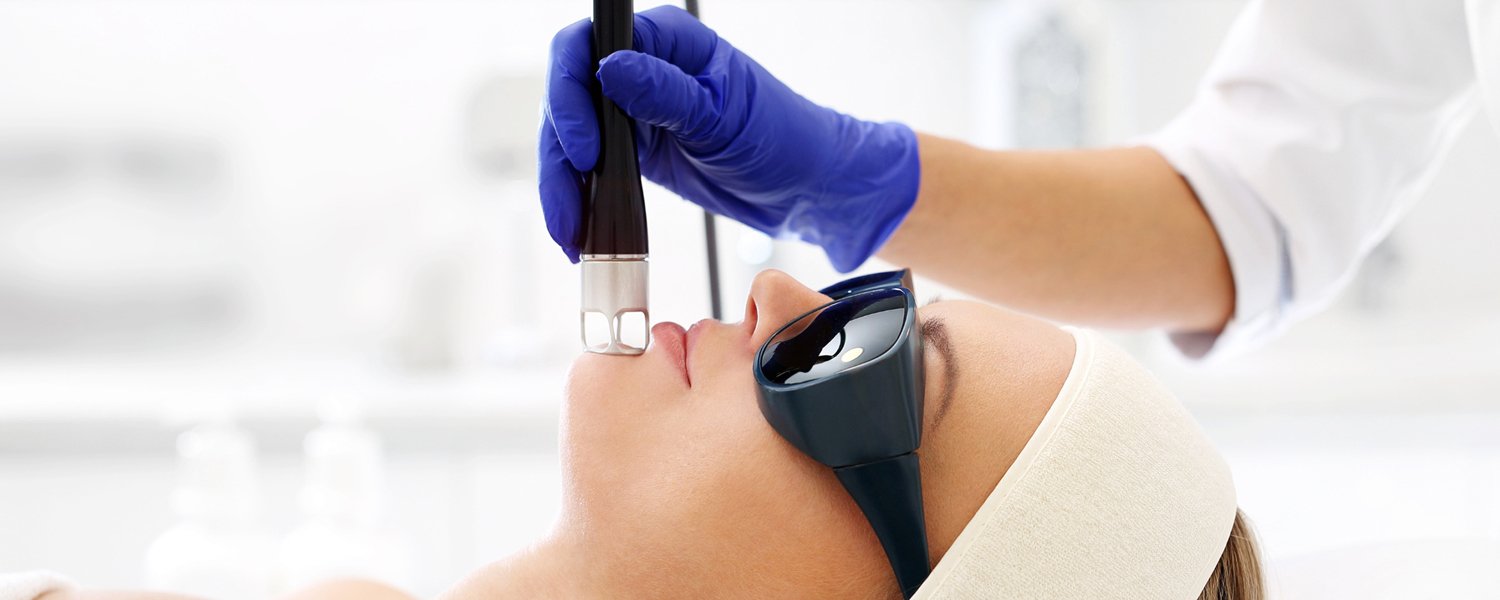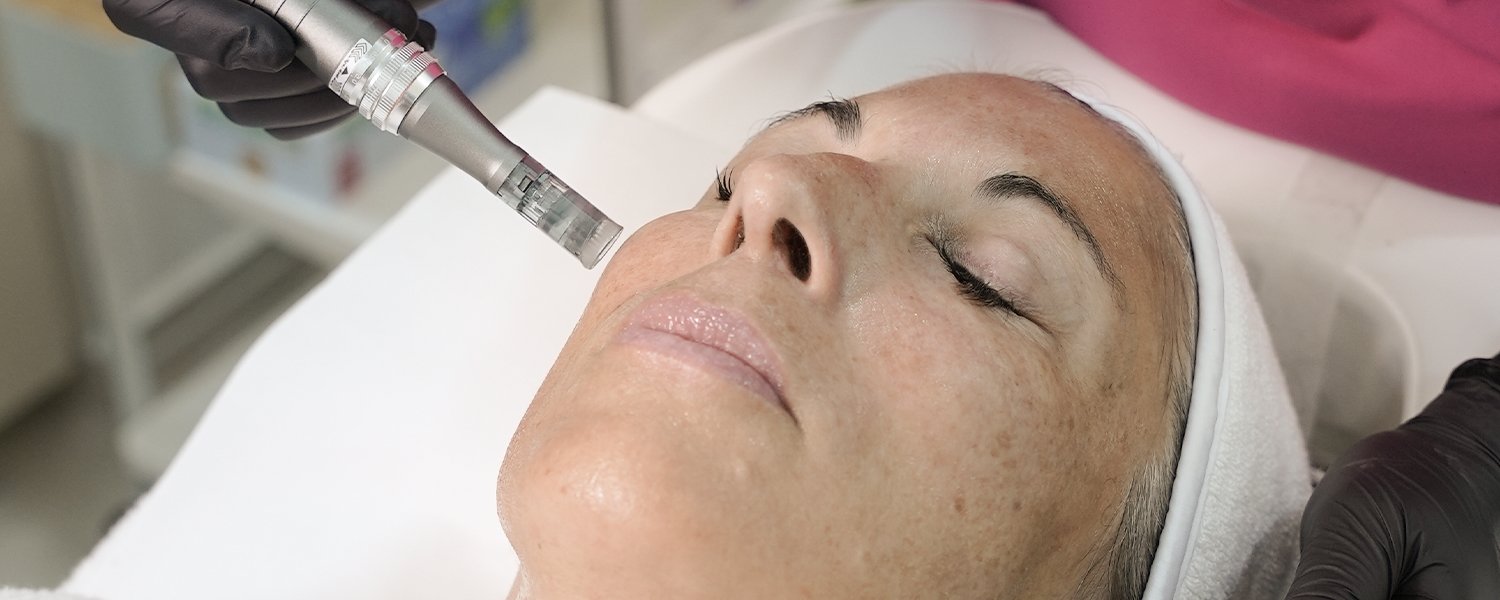
Chemical Peels in Dubai
Between sun exposure, pollution, and the daily stress of life, skin can start to look tired, uneven, and a bit lacklustre. Fine lines creep in, old blemishes linger, and that youthful glow? It’s often buried under layers of dull, damaged skin. If you’re looking for a way to hit refresh and let your natural radiance shine through, a chemical peel could be the perfect solution.
At Athena Dermatology Clinic in Dubai, we specialise in personalised chemical peel treatments designed to tackle specific concerns like pigmentation, acne scars, and fine lines. The result? Skin that feels refreshed, rejuvenated, and radiant.
A chemical peel is a targeted skin-resurfacing treatment that works by applying a carefully formulated solution to exfoliate the top layers of skin. This process promotes skin cell turnover, unveiling fresher, healthier skin beneath. Peels come in various strengths—light, medium, or deep—each tailored to meet specific skin needs. While light peels offer gentle exfoliation, deeper peels address more significant issues like pronounced wrinkles or scars.
By removing damaged skin cells, chemical peels stimulate the production of collagen and elastin, the building blocks of firm and youthful skin. This dual action of exfoliation and regeneration makes them a powerful tool for enhancing texture, reducing pigmentation, and softening fine lines.
Chemical peels aren’t just for the face. They can also treat other areas like the back, chest, and hands, effectively addressing issues such as body acne, sun damage, or uneven texture.
Tailored Treatments for Every Skin Concern
Chemical peels are incredibly versatile, making them suitable for various skin concerns and goals. Light peels provide gentle exfoliation, ideal for addressing minor pigmentation, uneven texture, and fine lines. Medium peels go deeper, tackling age spots, moderate pigmentation, and mild acne scars.
The timeline for results depends on the type of peel. With a light peel, improvements in texture and radiance can appear within a week. Medium to deep peels, which address more significant concerns, may take 1–2 weeks to reveal dramatic improvements as deeper layers of skin are renewed.
Different types of chemical peels are available to cater to specific skin concerns. For acne-prone skin, salicylic peels work to target breakouts and reduce oiliness. Glycolic peels are ideal for brightening the complexion and improving skin texture. For those dealing with pigmentation and mild wrinkles, TCA peels offer deeper exfoliation and noticeable improvement. These options make chemical peels an adaptable solution, addressing a broad spectrum of skin concerns.
At Athena, we are proud to offer The Perfect Derma Peel™, an advanced treatment suitable for all skin types. This medium strength peel addresses multiple skin concerns while ensuring safety and comfort, even for sensitive or darker skin tones.
What sets The Perfect Derma Peel™ apart is its adaptability. Post-treatment care can be customized to suit your needs, and results are often noticeable within just one week. To further protect and enhance the results, the treatment includes Mineral Perfection SPF 30, ensuring your skin stays shielded and radiant.
Living in Dubai’s hot climate doesn’t limit your ability to enjoy the benefits of chemical peels. With the right aftercare, including consistent sun protection, these treatments are safe and effective year-round.
-
A regular chemical peel usually lasts about 15–20 minutes. Your doctor will cleanse your face thoroughly to ensure even application of the peel solution. The chosen peel solution is applied and may be left on the skin for a few minutes to several hours, depending on its strength. You’ll receive specific aftercare instructions based on the peel type.
Results and Recovery
Post-peel, expect redness and mild swelling, with skin shedding over 2–5 days. Deeper peels may result in longer recovery periods, with potential for temporary scabbing and heightened redness.
What to expect during the The Perfect Derma Peel™Day 1 – Peel Application:
The peel solution is applied to your skin and left on for at least 6 hours. During this time, avoid washing, touching, or applying makeup.
For those with sensitive skin or specific concerns (e.g., Fitzpatrick types IV-VI, melasma), a moisturiser with 1% hydrocortisone can be applied to soothe irritation.
Evening Routine:
Wash your face gently
Moisturiser is used sparingly only if irritation occurs.
Day 2 – Maintenance:
Continue to avoid heavy sweating, exercise, or sauna use and apply SPF 30 to protect your skin during the day. Makeup is optional.
Day 3 – Peeling Begins:
Your skin may feel tight, look slightly darker, and begin peeling naturally. Avoid picking or rubbing the peeling skin to prevent scarring.
Use a moisturiser 2-3 times a day to soothe tightness and support the peeling process.
Days 4-7 – Peeling & Recovery:
Peeling typically completes within a week. Continue gentle cleansing and apply SPF 30 every two hours if exposed to the sun.
For Asian, Hispanic, or African-American skin tones, moisturisers should be used for two weeks to ensure optimal recovery.
-
Avoid sun exposure and tanning for at least two weeks leading up to your appointment.
Use retinol-based creams as advised, generally two to three weeks beforehand, to prime the skin.
Discontinue active skincare products like acids and exfoliants at least three days before treatment to avoid irritation.
-
Avoid heat and activities that induce sweating, such as exercise and hot showers, for 72 hours post-peel.
Stay out of the sun and avoid tanning beds for at least two weeks following your peel to protect new skin.
Do not pick or rub the skin as it sheds; let it slough off naturally.
Follow a doctor-recommended skincare regimen to enhance healing and prolong your results.
FAQ on Chemical Peel Treatment
-
It’s best to avoid makeup for at least 48 hours after a light peel, or until any visible peeling and redness subside. For medium or deep peels, it may be necessary to wait a bit longer. Ask your doctor for specific guidance based on your skin’s healing progress.
-
Most patients experience a tingling or warm sensation during the procedure, which is typically tolerable. Stronger peels may have a slight stinging sensation, but your doctor will monitor your comfort and may use a cooling technique to ease discomfort.
-
Chemical peels use a solution to exfoliate the skin’s surface, while laser treatments use light energy to penetrate deeper layers. Both can address pigmentation and fine lines, but peels are generally less invasive and have a shorter downtime.
-
Yes, chemical peels, particularly medium-depth peels like TCA, can help reduce the appearance of acne scars by promoting collagen production and skin renewal. For deeper scars, a series of treatments may be recommended.
-
Multiple sessions are often recommended to see the best results, especially for issues like pigmentation, scarring, or fine lines. Light peels may be done more frequently, while medium and deep peels are spaced further apart to allow full recovery.
-
Yes, chemical peels can be combined with injectables, but they’re often done at separate appointments. Botox and fillers are typically done after the skin has fully healed from the peel. Consult your dermatologist for the best schedule.
-
Yes, but it’s essential to choose the right type of peel for your skin tone to minimise risks like hyperpigmentation. Certain peels are better suited for darker skin tones, so consult a professional with experience in treating a variety of skin types.
-
No, chemical peels do not thin the skin; they remove only the damaged outer layers. In fact, peels stimulate collagen production, which can improve skin’s elasticity and resilience over time.
-
Mild redness and irritation are normal, but if you experience prolonged discomfort, burning, or an unusual reaction, contact your provider. They may recommend specific treatments or products to calm and protect your skin.
-
The frequency of chemical peels depends on the peel’s intensity. Light peels can be done every few weeks, while medium and deep peels are typically done once every few months or as advised by your dermatologist.
-
Yes, certain chemical peels, particularly light and medium peels with ingredients targeting pigmentation, can help reduce melasma. However, managing melasma often requires ongoing treatment and sun protection for lasting results.
-
You can apply makeup starting on Day 2 as long as there is no irritation. Mineral-based makeup is recommended during the healing process.
-
Yes! The Perfect Derma Peel™ is designed for all skin types and tones, including sensitive and darker skin (Fitzpatrick IV-VI). It’s also effective for conditions like melasma and hyperpigmentation.
-
Tightness and slight irritation are normal during the peeling process. Use the provided moisturiser 2-3 times daily to relieve discomfort. If irritation persists, apply a cold compress to soothe the area.
-
No! Let the peeling happen naturally to avoid scarring or uneven healing. Picking at peeling skin may cause long-term damage.
-
The Perfect Derma Peel™ combines effectiveness with comfort. It works on all skin types, addresses multiple concerns (like pigmentation, acne, and fine lines), and comes with a complete home-care kit for a smooth recovery process.
Reveal a naturally smoother, clearer complexion with the best chemical peels in Dubai including the Perfect Derma Peel™
To book your consultation, call us at 042505081 or complete our online contact form. Experience a simple, effective way to refresh and renew your skin.
Similar Treatments
Profhilo, Volite, Restylane Vital and more









